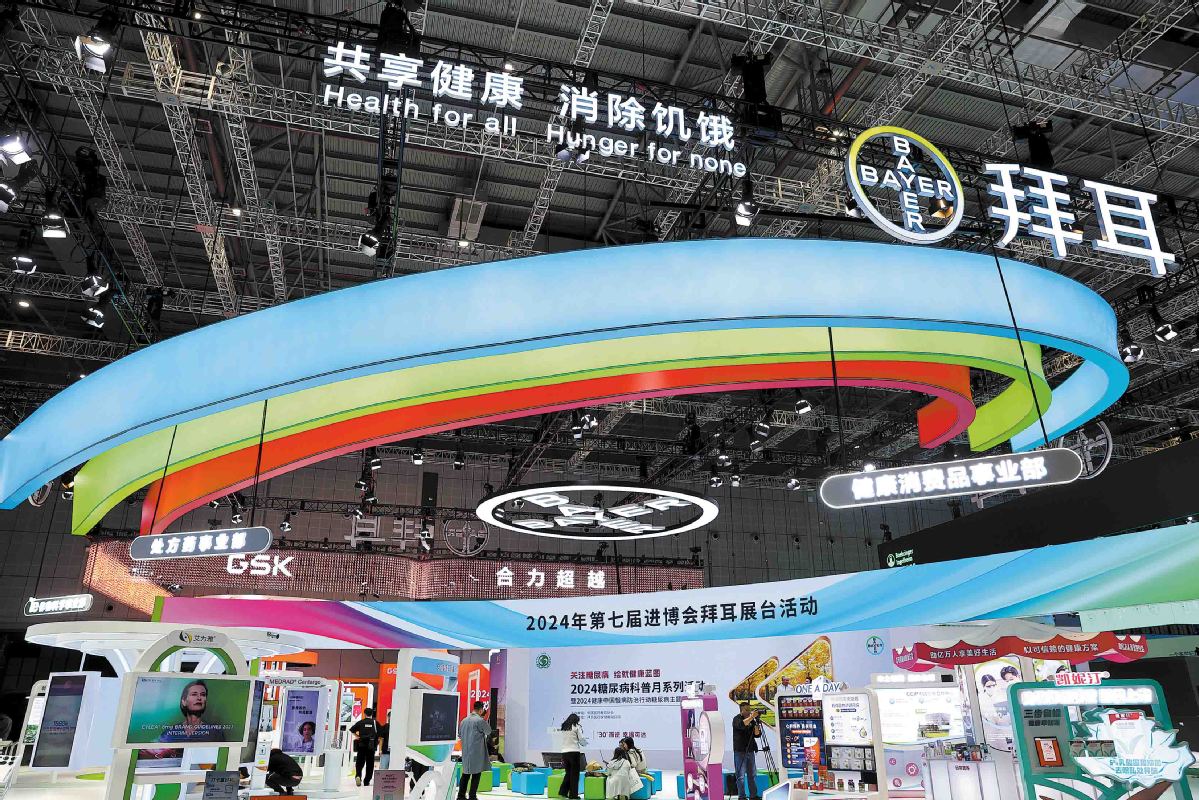Bayer sees huge opportunities in agri, electrification, healthcare
German life sciences conglomerate upbeat about China's market prospects


With huge opportunities in electrification, healthcare and agriculture, German life sciences company Bayer is upbeat about China's market prospects during the upcoming 15th Five-Year Plan (2026-30), and will keep investing in the fields, said a senior executive.
Matthias Berninger, Bayer's EVP, head of public affairs, sustainability and safety, said: "Even if affected by the trade war, China's market prospects are still promising. First, China is the number one export partner for the largest number of countries and has been a partner of choice for so many countries in the world. In fact, no country has more export destinations than China."
"Second, China remains a large market with a population that still has high demand. There are developed parts of China, but there are lots of parts of China that still need to catch up, so there is a lot of domestic demand. Third, no country is more advanced in electrification than China. The growth of electricity demand in China is bigger than anywhere in the world, that's a foundation for success.
"I've been following the growth and successes of renewable energy throughout my professional career and it's really reassuring to see how electrification is advancing in China," he said.
Data from China Electricity Council show that in 2024, China's electrification rate reached 28.8 percent, 0.9 percent higher than the previous year, surpassing major developed economies in Europe and North America. The number was expected to grow to 35 percent by 2030.
Berninger also mentioned China's innovation. "China is an innovation powerhouse. Those who believe that China just copies and pastes are completely wrong. China has always been innovating."

"In the past two years, China has made tremendous progress. It's now among the leading nations. It is not dominant, but really strong. We see it in the pharmaceutical space where China-led innovation is becoming very attractive for global pharmaceutical companies such as Bayer. The startup world is really amazing in that space. We created a Co. Lab, where startups can cooperate with our scientists. I believe that for Bayer, there will be huge opportunities in striking deals with Chinese innovators in the space of pharmaceuticals," Berninger said.
Last September, Bayer opened Bayer Co. Lab Shanghai as part of its global network of life science incubators, with others situated in the United States, Japan and Germany. Co. Lab will provide exclusive space and tailored support services for Chinese startups, promote open innovation and collaboration in the biotech ecosystem, and play an important part in Bayer's efforts to promote local research and development and innovation throughout the whole chain.
The senior executive also sees great opportunities in the agricultural sector. "We are sharing agricultural innovation with China. We offer the potential for China to become not only a leading country, for example, in corn production when it comes to hectares, but also when it comes to yield, and also output. We can innovate together with local breeders, with local companies and bring the best seeds that you can grow in the world to China."
In 2021, Bayer launched Bayer ForwardFarming, a global sustainable agricultural project, in China. The project adopts the concept of regenerative agriculture, which, with the help of technology, raises the production efficiency of crops while restoring the ecology of the land. Currently, there are around 20 Bayer ForwardFarms in the world, among which China has three — in Jilin province, Shanghai and Beijing, planting corn, vegetables and rice, respectively.
"I am very optimistic that China will make a meaningful contribution to reducing carbon emissions on a global scale. That is true for sustainability, and it's also true for the healthcare system.
"In China, the progress I've seen leads me to believe that we have the right to play and that we can add to China's successes, and we are certainly committed to continuing to invest," he said.




































